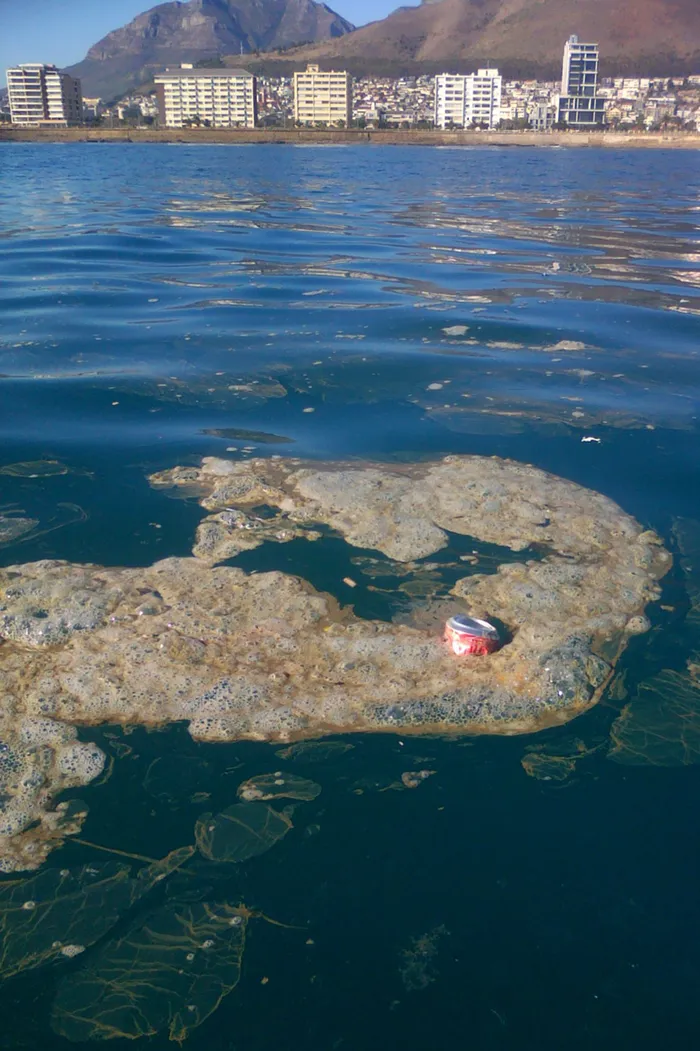Chronic pollution at Three Anchor Bay - report

Three Anchor Bay is rated “poor” and described as having chronic coastal water quality problems in the Know Your Coast report Picture: Karen Watkins.
Pollution continues to plague Three Anchor Bay, according to the City’s latest coastal water quality report.
The bay rated “poor” and - along with three other swimming spots in Central False Bay, Lagoon Beach in Milnerton and Macassar to Gordon’s Bay - is described as having chronic coastal water quality problems in the Know Your Coast report, which measures coastal water quality at recreational beaches, tidal pools and coastal monitoring points.
According to mayoral committee member for spatial planning and environment Eddie Andrews, this is the third Know Your Coast report. He said stormwater and river discharges had the biggest impact on near-shore water quality.
The latest report covers coastal water quality to September 21, 2023.
The report includes the sampling results from 2018 to 2023, which determined the water quality at recreational beaches, tidal pools, and coastal monitoring points. The key findings come from over 10 000 sample bacterial test sites, twice a month in the surf zone and in tidal swimming pools, along a stretch of 307km coastline from Silwerboomstrand on the Atlantic to Kogel Bay on the east side of False Bay.
The samples are analysed by the City’s scientific services unit and categorised as “excellent”, “good”, “sufficient”, or “poor”, based on a 365-day rolling period.
For most healthy people, water quality that meets acceptable standards, “sufficient” or above, will pose little risk to their health, said the report.
Coastal water quality is assessed by comparing the number of E coli and enterococci bacteria in the water samples to limits set out in the South African Water Quality Guidelines for Coastal Marine Waters. The bacteria serve as indicators of faecal pollution and the potential presence of pathogenic micro-organisms.
The ratings are based on the estimated risk of illness per exposure to swimming for 10 minutes with three head immersions. Less than 2.9% is “excellent”, less than 5% is “good”, less than 8.5% is “sufficient” and more than 8.5% is “poor”.
Apart from the annual Know Your Coast report, the City runs a statistical analysis for each site twice a month.
Camps Bay tidal pool is rated “sufficient” despite having a reading of 1553 E coli cfu/100ml.
Caroline Marx, of anti-pollution activist group ReThinkTheStink, said the actual result could be far higher, and even treated effluent from a sewage plant should have less than 1000 E coli cfu/100ml.
Similarly high levels are found in the report at many beaches including Hout Bay (2420), Silverstroom (7260), Strand Pavilion jetty (1120) and Gordon's Bay (1733), and Ms Marx said they posed possible health risks to users. “How sad in a city famous for its beautiful coastline,” she said.
Other tidal pools at Milton Beach, Sunset Rocks, Saunders Rocks and Maidens Cove 1 are rated “poor” while Maiden’s Cove 2 is rated “sufficient”.
Clifton’s four beaches all ranked together as “good” in 2023 and 2021, down from “excellent” in 2018/19/20 while Camps Bay Beach was rated “good” in 2023 and 2022, down from “excellent” for two years. Cosy Bay is rated “excellent” for 2023.
Dr Cleeve Robertson, CEO of the National Sea Rescue Institute, said the City’s data lacked credibility and integrity. Relying solely on E coli measurements gave a limited picture of water quality as sewage could harbour numerous pathogens, he added.
He pointed to discrepancies between the City’s data and the scientific findings of experts such as Professor Leslie Petrik, who leads the Environmental and NanoScience Research Group at UWC, and Dr Jo Barnes, whose primary research focuses on water-related diseases.
Dr Robertson suggested the City was manipulating data to serve its own agenda, which didn't align with the well-being of its citizens.
Ocean activist and owner of a kayak tour company, Tracy Rauch, said she had not seen sewage pollution coming from the stormwater drains on Three Anchor Bay Beach for some time, although it was usually more noticeable during summer.
She believes much of the pollution is from plastic and other litter washed or blown into the sea.
Mr Andrews said the City needed partnerships with residents. “And for residents to refrain from littering, illegal dumping in our sewers and stormwater mains, and to not dispose of grey water or any other substances in the stormwater mains. Everything that is dumped in our rivers, canals, stormwater mains and streams, from household bin washing, pet waste, household cleaning agents, fats, oils and grease, eventually finds its way into the sea.”
Mayoral committee member for water and sanitation Zahid Badroodien said there was a R8.6 billion capital expenditure on sewage-plant upgrades over three years with R1.8 billion for extensions and upgrades over the next financial year. That would increase to R3 billion for the 2024/25 financial year.
View the report at capetown.gov.za
